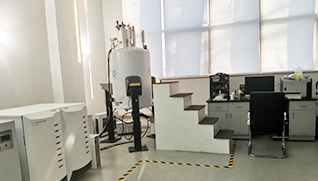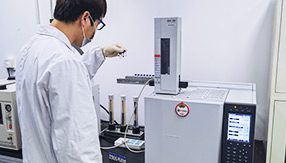注意:因业务调整,暂不接受个人委托测试望见谅。
泛素化蛋白检测范围
泛素连接酶,泛素降解体系,泛素配体,泛素化酶,泛素连接系统,泛素修饰,泛素化作用,泛素信号通路,泛素化酶系统,泛素化酶族,泛素连接,泛素转移酶,泛素标记,泛素化酶家族,泛素化修饰,泛素化泛素,泛素化靶蛋白,泛素通路,泛素化蛋白质,泛素化加工泛素化蛋白检测项目
泛素化蛋白, PTMs, 磷酸化位点, 甲基化位点, 乙酰化位点, 糖基化位点, O-葡萄糖基化位点, N-乙酰葡萄糖胺化位点, 硝化位点, 泛素化位点, 硫化位点, 丙二酰化位点, 泛素连接酶, 蛋白质修饰酶, 组氨酸甲基转移酶, 组氨酸乙酰转移酶, 研究用抗体, 斑点分析, 颗粒血浆免疫发射测定, 质谱分析, 单细胞测序, 转录组测序, 人蛋白质组计划, 病毒学检测, 荧光定量PCR, 超高灵敏检测, 微量溶液检测, 肿瘤标志物检测, 抗体检测, 细胞凋亡检测, DNA/RNA提取, 全基因组测序, 包埋切片, 组织病理分析, 细胞分析沉降试验, 结构代谢物检测, 细胞增殖检测, 血液生化分析泛素化蛋白检测方法
Western blotting: Western blotting is a commonly used method to detect ubiquitinated proteins. In this method, protein samples are separated by SDS-PAGE and transferred to a membrane. The membrane is then probed with an antibody specific to ubiquitin or a ubiquitin-binding protein to detect the presence of ubiquitinated proteins.
Immunoprecipitation (IP): Immunoprecipitation is a technique used to isolate a specific protein or protein complex from a mixture of proteins. In the case of ubiquitinated proteins, an antibody specific to the target protein is used to immunoprecipitate the protein along with its ubiquitinated forms. The immunoprecipitated complex can then be further analyzed using techniques like Western blotting or mass spectrometry.
Ubiquitin-affinity purification: Ubiquitin-affinity purification is a method used to specifically isolate ubiquitinated proteins from a complex protein mixture. This method utilizes a resin or column matrix with immobilized ubiquitin or ubiquitin-binding proteins. The ubiquitinated proteins from the sample selectively bind to the column, while non-ubiquitinated proteins are washed away. The captured ubiquitinated proteins can then be eluted and further analyzed.
Tandem affinity purification (TAP): Tandem affinity purification is a powerful method used to purify protein complexes. For the purification of ubiquitinated protein complexes, a tandem affinity tag consisting of two different affinity tags, such as protein A and protein G, is genetically fused to the target protein. The tagged protein is then purified using two consecutive affinity purification steps. This method enables the isolation of ubiquitinated protein complexes for further analysis.
Fluorescence microscopy: Fluorescence microscopy can be used to visualize and study the localization of ubiquitinated proteins within cells. This method involves the use of fluorescently labeled antibodies specific to ubiquitin or ubiquitin-binding proteins. The labeled antibodies are used to stain cells or tissue sections, and the distribution and intensity of the fluorescence signal can provide information about the localization and abundance of ubiquitinated proteins.
Mass spectrometry: Mass spectrometry is a powerful analytical technique used to identify and quantify proteins. In the context of ubiquitination, mass spectrometry can be used to identify ubiquitin modification sites on specific proteins or to perform global analyses of ubiquitinated proteins in a given sample. This method involves the proteolytic digestion of proteins, followed by analysis of the resulting peptides using mass spectrometry instruments.
Ubiquitin chain analysis: Ubiquitin chain analysis refers to the determination of the types and linkage patterns of ubiquitin chains present on a protein or in a sample. This can be done using techniques like immunoblotting or mass spectrometry, combined with specific antibodies or enrichment strategies to detect and analyze different types of ubiquitin chains, such as K48-, K63-, or linear linkages.
Ubiquitin-proteasome activity assays: These assays are used to measure the activity of the ubiquitin-proteasome system, which is responsible for the degradation of ubiquitinated proteins. Various substrates and fluorescent or luminescent readouts can be used to assess the activity of proteasomes and the degradation of ubiquitinated proteins. These assays can provide insights into the overall ubiquitin-proteasome system function and its involvement in diseases.
Ubiquitin-binding assays: Ubiquitin-binding assays are designed to study the interaction between ubiquitin and proteins that bind to it. These assays can be performed using purified proteins or in a cellular context. Techniques such as pull-down assays, co-immunoprecipitation (Co-IP), or protein microarrays can be used to identify and characterize proteins that interact with ubiquitin or ubiquitin-binding domains.
CRISPR/Cas9-mediated knockout: CRISPR/Cas9 technology can be used to generate gene knockouts or specific mutations in cells or organisms. By knocking out genes encoding components of the ubiquitin system, the effects on ubiquitination and protein degradation can be studied, providing insights into the biological functions of ubiquitination.
泛素化蛋白检测仪器
电泳装置,质谱仪,高效液相色谱仪 (HPLC),核磁共振 (NMR),原子吸收光谱仪 (AAS),紫外-可见分光光度计,荧光光谱仪,质谱仪,气相色谱仪 (GC),液相色谱仪 (LC),电化学工作站,比色皿,聚合酶链式反应仪 (PCR),凝胶测定仪,螢光反應器,液体/气体/固体色谱纯化仪,细胞培养仪,流式细胞术,荧光显微镜,显微镜,透射电子显微镜
泛素化蛋白检测标准
YY/T 1888-2023:重组人源化胶原蛋白
QB/T 5950-2023:酵母蛋白
YY/T 1511-2017:胶原蛋白海绵
CNS 3282-2008:蛋白粉
QB/T 4222-2023:复合蛋白饮料
CNS 14452-2000:大豆蛋白
SB/T 10373-2012:胶原蛋白肠衣
YY/T 1849-2022:重组胶原蛋白
QB/T 4222-2011:复合蛋白饮料
QB/T 5961-2023:弹性蛋白肽
QB 2732-2005:水解胶原蛋白
FZ/T 50018-2013:蛋白粘胶纤维蛋白质含量试验方法
CNS 14453-2000:植物性蛋白
QB/T 5962-2023:抗冻蛋白肽粉
GB/T 23527-2009:蛋白酶制剂
FZ/T 50018-2013(2017):蛋白粘胶纤维蛋白质含量试验方法
农业部2031号公告-18-2013:转基因生物及其产品食用安全检测蛋白质糖基化高碘酸希夫染色试验
WS/T 404.9-2018:临床常用生化检验项目参考区间 第9部分:血清C-反应蛋白、前白蛋白、转铁蛋白、β2-微球蛋白
CNS 7820-1981:化学试药(卵蛋白)
GH/T 1042-2007:脱酚棉籽蛋白
SB/T 10649-2012:大豆蛋白制品
GB/T 34793-2017:蛋白酶K
GA/T 52-1993:蛋白泡沫灭火剂和氟蛋白泡沫灭火剂质量分等
SN/T 5422-2022:进出口纺织品 纤维定性分析 再生蛋白复合纤维(大豆蛋白复合纤维、牛奶蛋白复合纤维)
SB/T 10320-1999:熟料N型蛋白试验
YY/T 0032-2004:血红蛋白计
GB/T 40154-2021:饲料原料 棉籽蛋白
GB/T 22493-2008:大豆蛋白粉
FZ/T 54029-2010:蛋白质粘胶长丝
FZ/T 54029-2010(2017):蛋白质粘胶长丝
实验仪器




测试流程

注意事项
1.具体的试验周期以工程师告知的为准。
2.文章中的图片或者标准以及具体的试验方案仅供参考,因为每个样品和项目都有所不同,所以最终以工程师告知的为准。
3.关于(样品量)的需求,最好是先咨询我们的工程师确定,避免不必要的样品损失。
4.加急试验周期一般是五个工作日左右,部分样品有所差异
5.如果对于(泛素化蛋白检测)还有什么疑问,可以咨询我们的工程师为您一一解答。
-
服务保障 一对一品质服务
-
定制方案 提供非标定制试验方案
-
保密协议 签订保密协议,严格保护客户隐私
-
全国取样/寄样 全国上门取样/寄样/现场试验


















